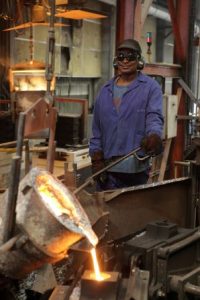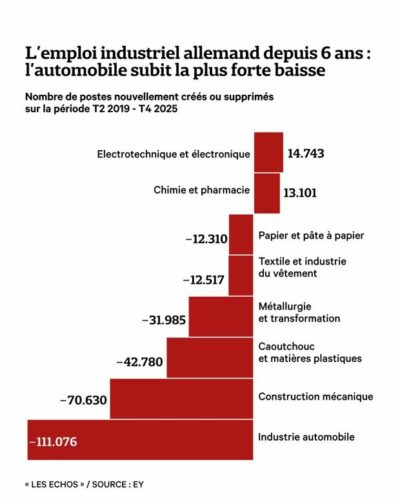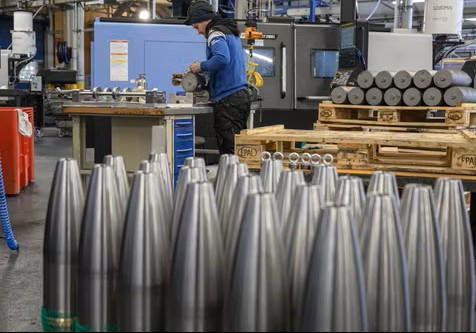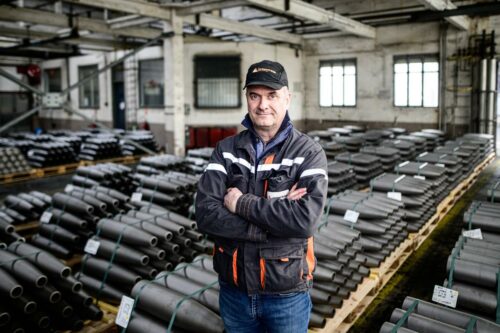Bentonite is not simply a gift from Earth but, more precisely, from its hot core, with much of it formed from volcanic layers that have aged for eons underground. When dug up, turned into powder and chemically »activated«, the mineral has an uncommon ability to absorb water and bind particles. This makes it not only extremely useful for the filtration of many fluids, ranging from edible oil and wine to wastewater, mining slurries and jet fuels. It also renders it highly valuable for undertakings as diverse as keeping cargo dry, foundry sands firm and drilling holes watertight.
Through its business unit Functional Minerals, Clariant currently operates 40 bentonite mines across the world. Buried deep below the surface like the bottom of a layered cake, finding, assessing and extracting the clay deposits is hard and satisfying work. At all sites, great pains are also taken to honor nature’s gift by reducing the impact on the environment.
Take Sardinia, for instance, which Süd-Chemie started to explore for bentonite in the late 1960s. Along with areas in Germany, China, India and near the US city of Fort Benton that gave the mineral its name, the large Italian island turned out to hold some of its most abundant deposits. Establishing this took five years alone, and after the first site started production in the southern community of Giba in 1975, extraction was later moved to S’Aliderru in the north of Sardinia, where Clariant’s heritage company secured long-term access to even purer clay. Today, emissions and energy are reduced by sun-drying the material before hauling it to the coast, and the good relations with the locals are maintained through Clariant’s guarantees of returning the land unharmed.
Anzeige
Reclamation and rehabilitation are important to landowners everywhere, and whenever they are not regulated by law, Clariant’s practice has been to apply its own high standards nonetheless. Though bentonite mines can be as deep as gravel pits, the overlying soil is refilled after the thin bottom layer has been removed, leaving the topography intact, and extensive measures are taken to restore flora and fauna. This can include planting deep-rooted crops to recultivate precious soil, or assiduously reforesting woodlands. If, however, rare toads have started settling in the pits, or rare birds in their steep walls, accommodations are made to protect this welcome addition to biodiversity.
Sustainability, as well as being able to ensure customers fast and reliable supplies, is also behind Clariant’s preference for processing the extracted minerals locally at each site. And, of course, sustainability has a major influence on innovation and the new products developed with bentonite.
With Clariant’s bentonite-based GekoTM LE+ and EcosilTM LE+ technology for green sand casting, for example, a way has been found to make this important method for molding metal parts much lower in harmful emissions. While with Tonsil® products, Clariant offers high-quality purifying solutions based on the ancient mineral that gently remove pigments, gums and other substances from edible oils, thus greatly improving their appearance, taste, odor and shelf life. By using Earth’s gift to make such processes more sustainable and effective, Clariant helps to take care of nature, worker safety – as well as its customers’ bottom line.
 Vous aimez la fonderie et la forge ? Aidez-les à durer
Vous aimez la fonderie et la forge ? Aidez-les à durer Adhérer à l’AAESFF, ce n’est pas une formalité. C’est un acte fort
Adhérer à l’AAESFF, ce n’est pas une formalité. C’est un acte fort Organiser les Fondériales
Organiser les Fondériales Réindustrialisation, métiers en tension…
Réindustrialisation, métiers en tension…
 Rejoignez l’AAESFF dès maintenant
Rejoignez l’AAESFF dès maintenant







































Les bienfaits de l’argile (à ne pas consommer avec modération)
Vous trouverez, ci-après, les vertus de l’argile, véritable purificateur naturel
Docteur Jade Allègre Argile et Coronavirus – YouTube